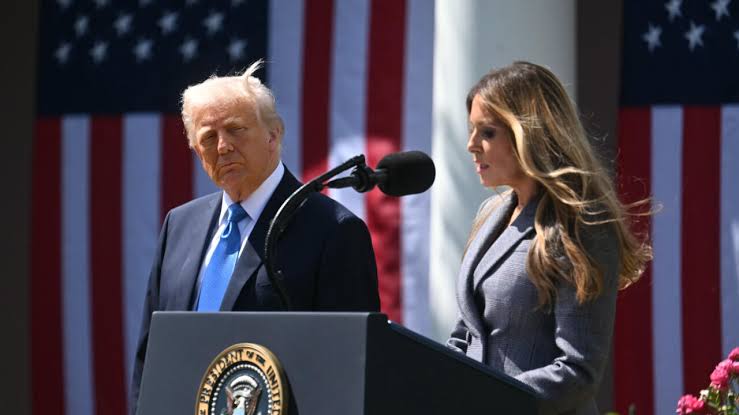
On Monday, U.S. President Donald Trump signed the Take It Down Act, officially making the distribution of revenge porn a federal crime. The bipartisan bill, strongly backed by both Republicans and Democrats, received notable public support from First Lady Melania Trump.
The legislation passed the Senate in February through unanimous consent and was approved by the House in April with an overwhelming 409-2 vote. Melania Trump played a key role in advocating for the bill, lobbying lawmakers to move it forward in Congress. In a symbolic gesture, President Trump invited her to sign the Act during the ceremony, despite first ladies having no official legislative authority.

The bill was spearheaded by Senator Ted Cruz and Congresswoman Maria Elvira Salazar, and drew cross-party backing, including from several prominent Democrats.
What is the Take It Down Act?
The Take It Down Act targets the growing issue of non-consensual sharing of explicit images, often referred to as revenge porn. It mandates that social media platforms remove such content, including AI-generated deepfakes, within 48 hours of a victim’s request. It also requires platforms to prevent the re-uploading of the material. Individuals who knowingly share explicit images without consent could now face criminal prosecution and prison time.
President Trump condemned the spread of AI-generated explicit content, stating it had led to the harassment of countless women and was “so horribly wrong.” He declared, “Today, we’re making it totally illegal.”
First Lady Melania Trump praised the new law as a “national victory,” warning about the dangers of digital platforms: “AI and social media are the digital candy for the next generation—sweet, addictive, and engineered to affect young minds. But unlike sugar, these tools can be weaponized and even deadly.”
Despite widespread support, the Act has drawn criticism from civil liberties groups and free speech advocates. Some warn that it could be misused to censor legitimate content, including LGBTQ+ media and legal adult material. Others expressed concerns that the law might allow the government to monitor private conversations under the guise of enforcement.
The debate around enforcement and privacy continues, but the Take It Down Act marks a significant federal step toward protecting individuals from digital sexual exploitation.

